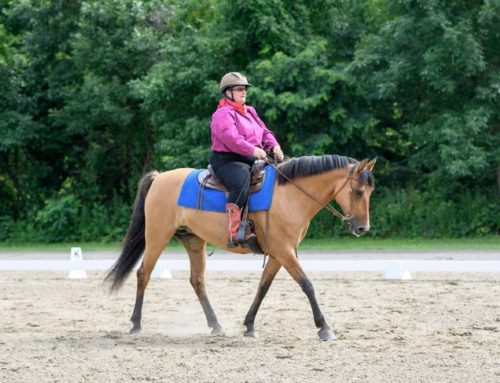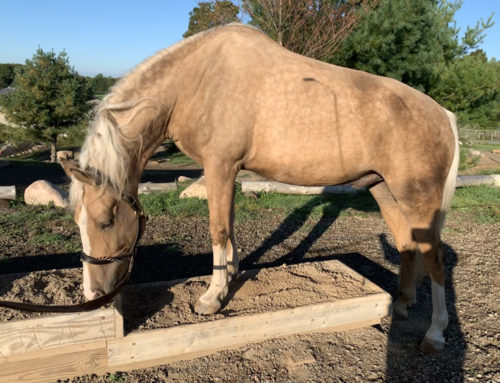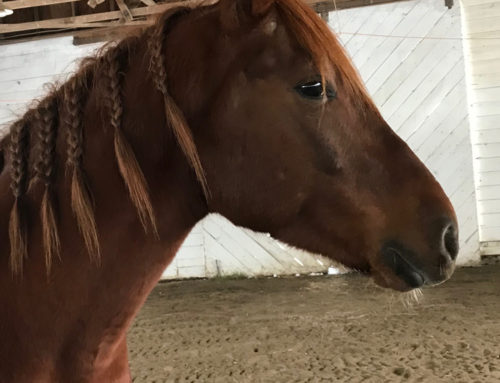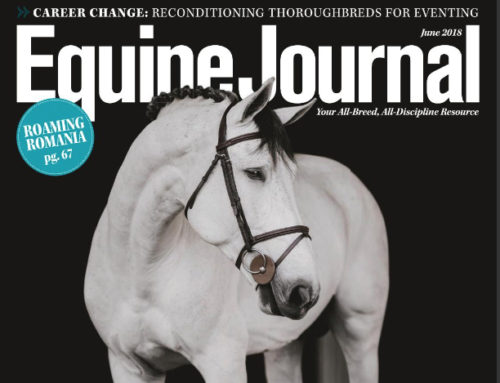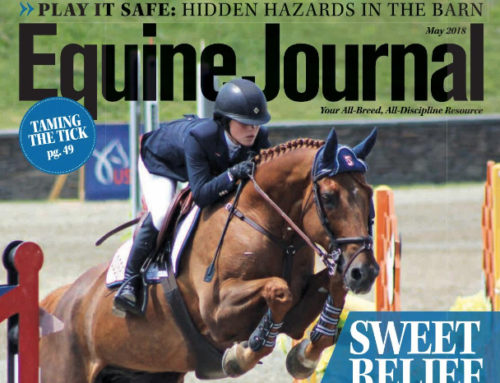Asia and I did indeed ride down the Centerline at the rated shows this summer. We competed at CT Morgan, New England Morgan, Oakrise Farm and The Northeastern Western Dressage Championships.
As I said in my last re-rider blog we competed at Intro because Asia simply isn’t ready for canter yet. Her back needs to get stronger. She has always carried her tail off to the left and has a slightly shorter range of motion in her right hind than her left hind. I have long suspected that this might become a problem some day but have had faith that a correct and slow development of her hind end would overcome the problem.
Up until this year I have worked on correcting her balance so that she can carry me at an even tempo and used trail riding to help her strengthen and stretch her muscles. This year the focus is on bring her balance further back so that I can encourage her to use her back better and lift her shoulders. It is hard work, for both of us, but I am feeling improvement in the trot especially. Her stride is getting longer and more confident without losing balance and tempo. I feel that the canter is coming and have had a couple of short ones that felt good, slow and balanced.
The tricky part is to figure out how much to ask and when to quit. If I ask too much her back gets sore but if I don’t ask enough we will never improve. It really is true that a genius trainer is one who can figure this out. How much to ask that particular horse at that particular time that will strike the perfect balance between getting it just right and overdoing it.
I have trained many many horses in my time and pride myself on being good at exactly this but in my re-rider status with Asia I find myself questioning my judgment. I find it much easier to figure out other horses than I do her and have thought a lot about why that is.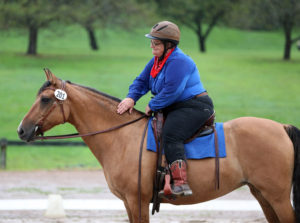
The conclusion I have come to is that I am much less able to be objective about Asia because I love her and plan to have her around for a very long time. I have noticed this with my students, that they find it hard to leave their emotions at the door when they ride their horses. They are inclined to get frustrated or sad when their lesson doesn’t match up to their expectations for themselves and their horse.
This doesn’t happen so much with a horse that isn’t theirs. My conclusion is that when you have committed to a long term relationship with a horse, training becomes harder in some ways. One’s hopes and fears for the two of you produce an emotionally loaded situation that can skew one’s judgment.
The answer for me has been to enlist professional help. We all need a ground person who is knowledgeable and can be trusted to give objective and educated assistance.
I am preparing to take Asia to Oklahoma for the Western Dressage World Championships and the Morgan Grand National. It is a long trip and a big undertaking but one I feel that both of us are ready for. I plan on writing about the experience.
Oklahoma here we come!


